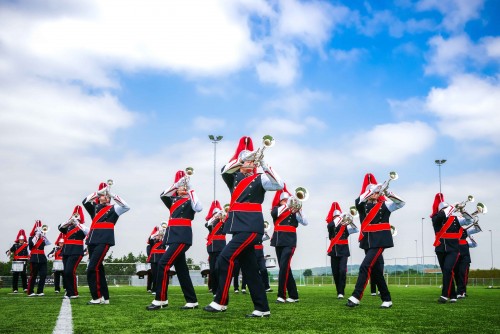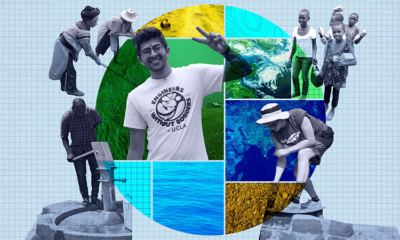Lifestyle
High School Extracurriculars Reveal Altruism Trends Among Students

Research from Rutgers University suggests that high school extracurricular activities may significantly influence students’ levels of compassion in adulthood. The study, led by Chien-Chung Huang, a professor at the Rutgers School of Social Work, indicates that so-called “geeky” activities, including volunteer work and clubs, foster greater altruism compared to traditional sports.
The investigation, published in the journal Youth & Society, analyzed data from the long-term Future of Families and Child Wellbeing Study. This ongoing research has tracked thousands of participants across the United States since 1998. In 2022, over 2,700 respondents provided insights into their high school extracurricular involvement between 2014 and 2018.
Approximately 87% of participants reported engagement in after-school activities. Notably, around 70% indicated they had engaged in altruistic behaviors during the COVID-19 pandemic, such as running errands, providing childcare, or offering financial support to others in need.
Huang and his team employed statistical modeling to evaluate the correlation between extracurricular engagement and altruistic behaviors. Their findings revealed a distinct pattern: higher involvement in after-school programs was linked to a greater likelihood of helping others during crises. Volunteer service emerged as the most significant predictor of altruism, followed by participation in school clubs, hobbies, religious services, and performance groups. In contrast, sports, despite being the most widely participated activity, ranked lowest in terms of fostering altruistic behavior.
Huang emphasized that these findings should prompt policymakers and school administrators to reconsider how sports are integrated into student development. While he acknowledged that athletes often excel academically and demonstrate strong leadership skills, he also pointed out that the competitive nature of sports can limit opportunities for nurturing altruism.
“Coaches could incorporate volunteering into their sports programs,” Huang suggested. “Teams could engage in monthly activities at community centers or retirement homes, fostering closer bonds and adding an altruistic dimension to their experience.”
Importantly, Huang clarified that the study is not a criticism of sports themselves but rather a reminder that all extracurricular activities have the potential to include opportunities for caring for others. He asserted that after-school programs, including athletics, play a crucial role in preparing young people to contribute meaningfully during times of societal need.
This research not only sheds light on the role of extracurriculars in shaping future altruistic behaviors but also underscores the importance of fostering compassion in young people. As schools consider how best to support student development, integrating elements of service and community engagement into various activities could benefit both individuals and society as a whole.
-

 Technology5 months ago
Technology5 months agoDiscover the Top 10 Calorie Counting Apps of 2025
-

 Health3 months ago
Health3 months agoBella Hadid Shares Health Update After Treatment for Lyme Disease
-

 Health3 months ago
Health3 months agoErin Bates Shares Recovery Update Following Sepsis Complications
-

 Technology4 months ago
Technology4 months agoDiscover How to Reverse Image Search Using ChatGPT Effortlessly
-

 Technology1 month ago
Technology1 month agoDiscover 2025’s Top GPUs for Exceptional 4K Gaming Performance
-

 Technology3 months ago
Technology3 months agoElectric Moto Influencer Surronster Arrested in Tijuana
-

 Technology5 months ago
Technology5 months agoMeta Initiates $60B AI Data Center Expansion, Starting in Ohio
-

 Technology5 months ago
Technology5 months agoRecovering a Suspended TikTok Account: A Step-by-Step Guide
-

 Health5 months ago
Health5 months agoTested: Rab Firewall Mountain Jacket Survives Harsh Conditions
-

 Technology5 days ago
Technology5 days agoOpenAI to Implement Age Verification for ChatGPT by December 2025
-

 Lifestyle5 months ago
Lifestyle5 months agoBelton Family Reunites After Daughter Survives Hill Country Floods
-

 Health3 months ago
Health3 months agoAnalysts Project Stronger Growth for Apple’s iPhone 17 Lineup




















